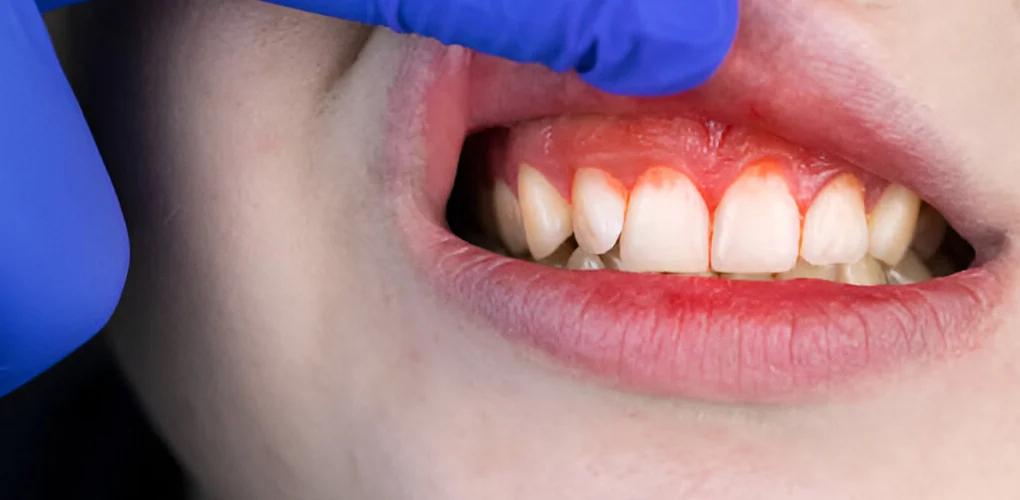`
Bleeding Gums: How to Spot and Treat the Problem
Improper oral hygiene leads to plaque and tartar buildup around tooth surfaces. This tartar buildup can lead to gingivitis or periodontitis. The most common sign of gum diseases is bleeding gums when brushing. Untreated gum bleeding causes serious issues like tooth mobility, gum recession, bone loss and tooth loss.
Bleeding gums is not always because of dental problems. It may occur due to some health conditions or deficiencies. Bleeding gums may also occur due to bad habits or addiction. Healthy oral hygiene practices and preventive measures can help to control bleeding gums.
Causes of Bleeding Gums
Bleeding gums can occur due to several reasons. Bleeding gums is not always due to dental issues because some health conditions can also cause bleeding gums.
Dental causes of Bleeding Gums:
- Poor oral hygiene
- Smoking
- Gingivitis
- Periodontitis
- Soft tissue infection
Systemic causes:
- Diabetes
- Vitamins C or K deficiency
- Hormonal changes
- Leukemia
- Hemophilia
- Anemia
- Stress
- Medications
- HIV/AIDS
Treatment Options for Bleeding Gums
Bleeding gums treatment depends on the cause of gum diseases and severity of disease. Dentists recommend a suitable treatment after evaluating the condition of gums. Following are the treatment options available to treat gum bleeding:
1: Proper oral hygiene practices
Mild form of gum bleeding can be controlled by improving oral hygiene practices. Rinse with antiseptic mouthwash helps to remove bacteria that cause gum diseases. Lukewarm saltwater rinse lowers the gingival inflammation and bad odor.
2: Regular dental cleanings
Professional dental cleaning removes plaque and tartar from tooth surfaces and below gumline. This will prevent gum diseases and bleeding gums.
3: Root planning
Root planning is a deep dental cleaning. Root planning removes plaque from root surfaces. It makes root surfaces smooth to prevent bacterial accumulation that causes bleeding gums.
4: Laser surgery
Laser surgery is performed to correct gingival margin. It removes the infected gum tissues effectively. It helps to prevent the complications of gum diseases.
Prevention Tips for Bleeding Gums
Improve brushing technique
It is advised to use soft bristle toothbrush and gentle motions to clean tooth surfaces. Aggressive or hard brushing may also contribute to bleeding gums.
Flossing
It is advised to do flossing at least once a day. It helps to remove food particles between teeth and prevent gum diseases that cause bleeding gums.
Mouthwash and saltwater rinse
Bleeding mainly occurs due to inflammation of gums. Antiseptic mouthwashes can help to remove germs and reduce gum inflammation. Saltwater rinse gives soothing effects to inflamed gums and minimizes gum bleeding. Saltwater rinse helps to keep gums healthy.
Eating a healthy diet
A healthy diet full of nutrition is important for overall well-being. Vitamin C rich foods improve gum health and prevent gum diseases.
Smoking
Smoking or tobacco products impairs blood flow and oxygen supply to gums. Smoking can make gum diseases worse and increase gum recession. Quitting smoking allows gums to heal and help to stop bleeding.
`

